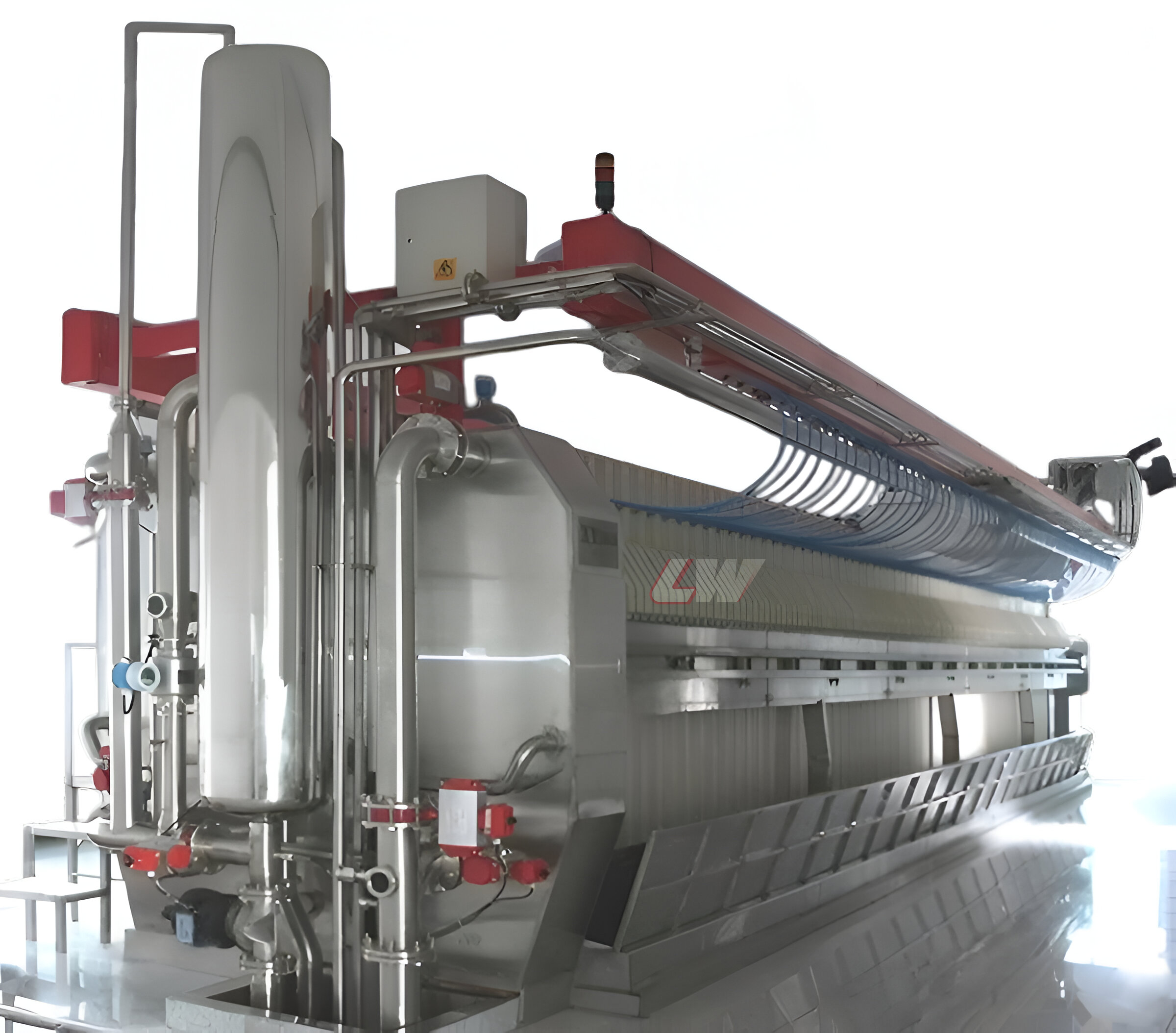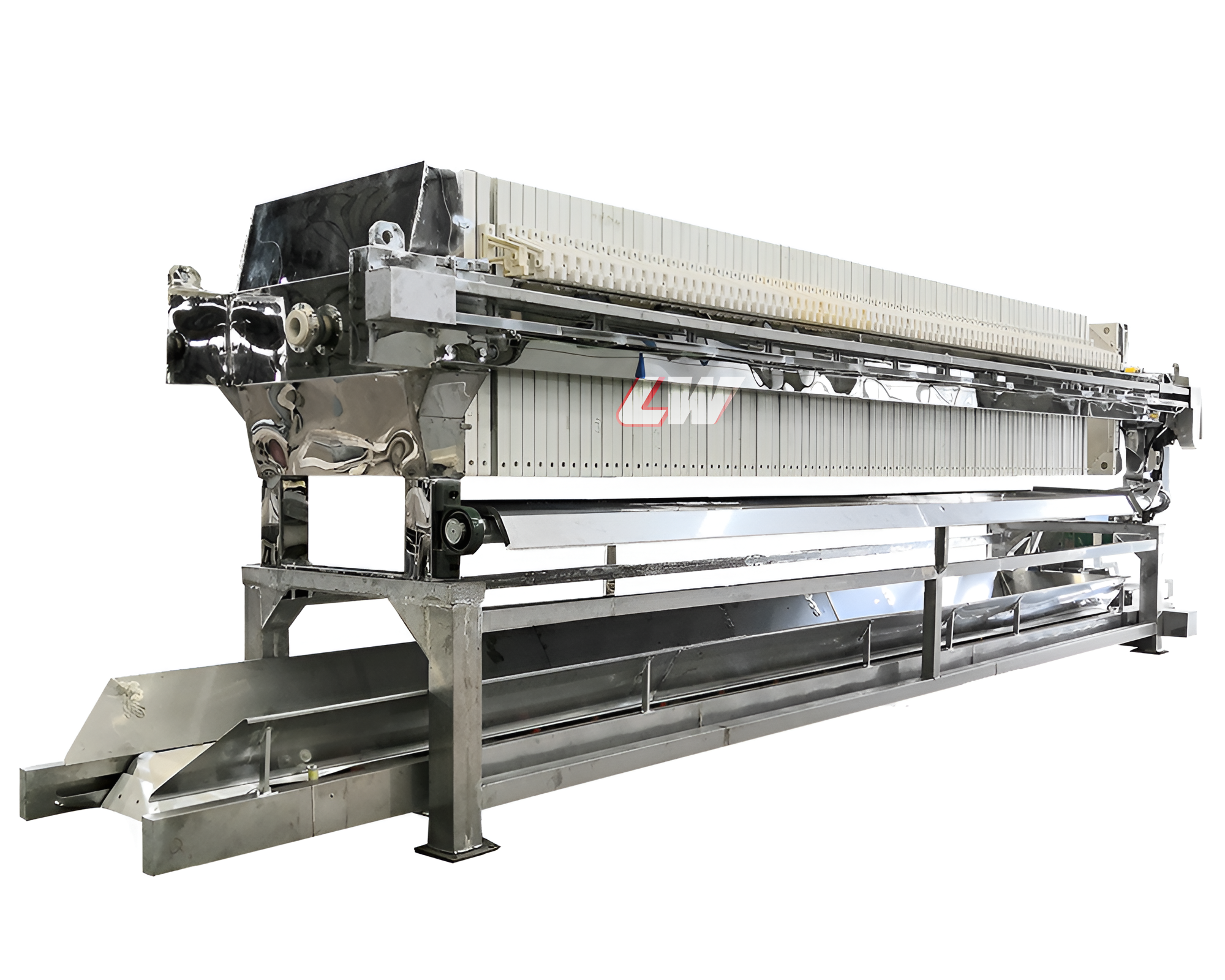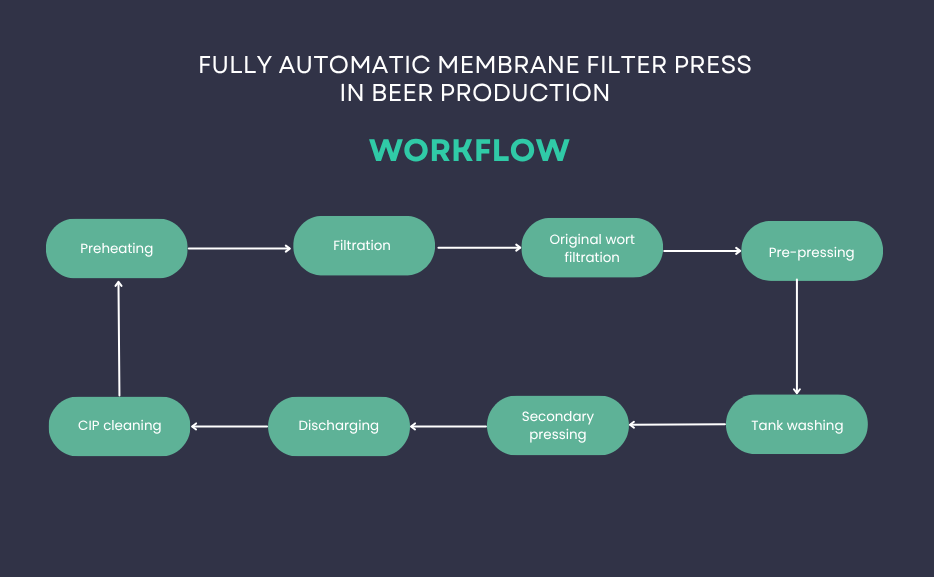
In the beer production process, filtration is a key step to ensure the clarity, stability, and taste of the beer. Its core goal is to efficiently separate and remove pectin, bacteria, protein, flocculants, and other substances that are easy to cause precipitation in wort and finished beer.
The three core links of beer production: wort filtration, mature beer filtration after fermentation, and yeast slurry filtration and recovery.
In actual production, the core requirements of beer companies for filtration equipment are concentrated on three points: first, to obtain a higher extract yield, second, to achieve a faster filtration speed, and third, to shorten the filtration cycle to improve overall production efficiency.
In the wort preparation process, the core task of wort filtration is to separate the malt trough from the wort, which directly affects the quality and production efficiency of subsequent beer. At present, the conventional wort filtration method in the industry has many shortcomings:
Given the shortcomings of existing filtration methods, we recommend that beer production companies use fully automatic membrane filter presses to achieve the goals of increasing production and flexibly adjusting the proportion of auxiliary materials (thereby reducing production costs).
The core components of this fully automatic filter press include: a fully covered stainless steel frame (to ensure the corrosion resistance and stability of the equipment), a polypropylene diaphragm filter plate (to improve filtration efficiency and sealing), a special filter cloth (to optimize the separation effect), a high-precision hydraulic system (to ensure the stability of the filter plate pressing force), an intelligent automatic control system (to achieve fully automated operation), an efficient dregs removal system (to reduce wheat trough residue) and a supporting auxiliary pipeline system (to ensure smooth material transportation).

The complete workflow is as follows:

By testing the wort quality indicators of the filter tank and the fully automatic membrane filter press, the results show that the fully automatic membrane filter press has significant advantages in key indicators (as shown in the following table):
Quality indicators | Filter tank | Wort filter press | Comparison conclusion |
Sediment (ML/L) | <1.0 | <0.2 | Significant reduction in sediment content |
Turbidity (EBL) | <10 | <2 | Turbidity is significantly reduced, and clarity is higher |
Fat (mg/L) | 18 | 17 | Slightly lower in fat |
Polyphenols (mg/L) | 180 | 195 | More polyphenols retained |
Oxygen | ++ | + | Oxygen absorption is significantly reduced, which is beneficial to flavor preservation |
From the data, it can be seen that the sediment in the wort after filtration by the fully automatic diaphragm filter press is reduced by 80%, the turbidity is only 1/5 of that in the filter tank, and the oxygen absorption is greatly reduced, which can effectively reduce the impact of oxidation on the flavor of beer; at the same time, polyphenols are more fully retained, which helps to enhance the antioxidant properties and flavor level of beer.
Under similar production capacity conditions, the core production indicators of the fully automatic membrane filter press and the traditional filter tank are compared as follows:
Wort filtration equipment | Filter tank | Wort filter press |
Feeding amount (t) | 9.5 | 10.5 |
Daily saccharification batch | 10 | 12 |
Wort concentration (°P) | 16 | 19 |
Operation cycle (min) | 136 | 116 |
Yield (%) | 99.3 | 102.44 |
Turbidity (EBC) | 5.3 | 1.45 |
Moisture content of wheat trough (%) | 80 | 71.5 |
The data show that the fully automatic membrane filter press has outstanding advantages in production efficiency and resource utilization: the feed amount increased by 10.5%, and the daily saccharification batch increased by 20%, which means that the daily production capacity has been significantly improved; the operation cycle was shortened by 14.7%, which can reduce the idle time of the equipment; the recovery rate increased by 3.14 percentage points, which directly increased the amount of effective products obtained; the moisture content of the wheat trough was reduced by 8.5 percentage points, indicating that the residual wort in the wheat trough was more fully recovered, reducing the waste of raw materials. At the same time, the wort concentration was higher (19°P vs 16°P) and the turbidity was lower (1.45 EBC vs 5.3 EBC), which further confirmed its dual value in improving product quality and production efficiency.
Through actual project application verification, the fully automatic membrane filter press has shown the following significant advantages in beer production:
The process follows these key steps:
Membrane filter presses are ideal when:

Ready to Optimize Your Filtration Process?
Contact our team of filtration specialists today to discuss how our filter press solutions can address your specific solid-liquid separation challenges. From process assessment to custom configurations, we’re here to help you achieve maximum efficiency and product quality.

filter press price | sludge dewatering equipment supplier | filter press manufacturer| dewatering screw press | belt filter press | wastewater treatment equipments| wastewater treatment plants
schedule a consultation with our filtration experts